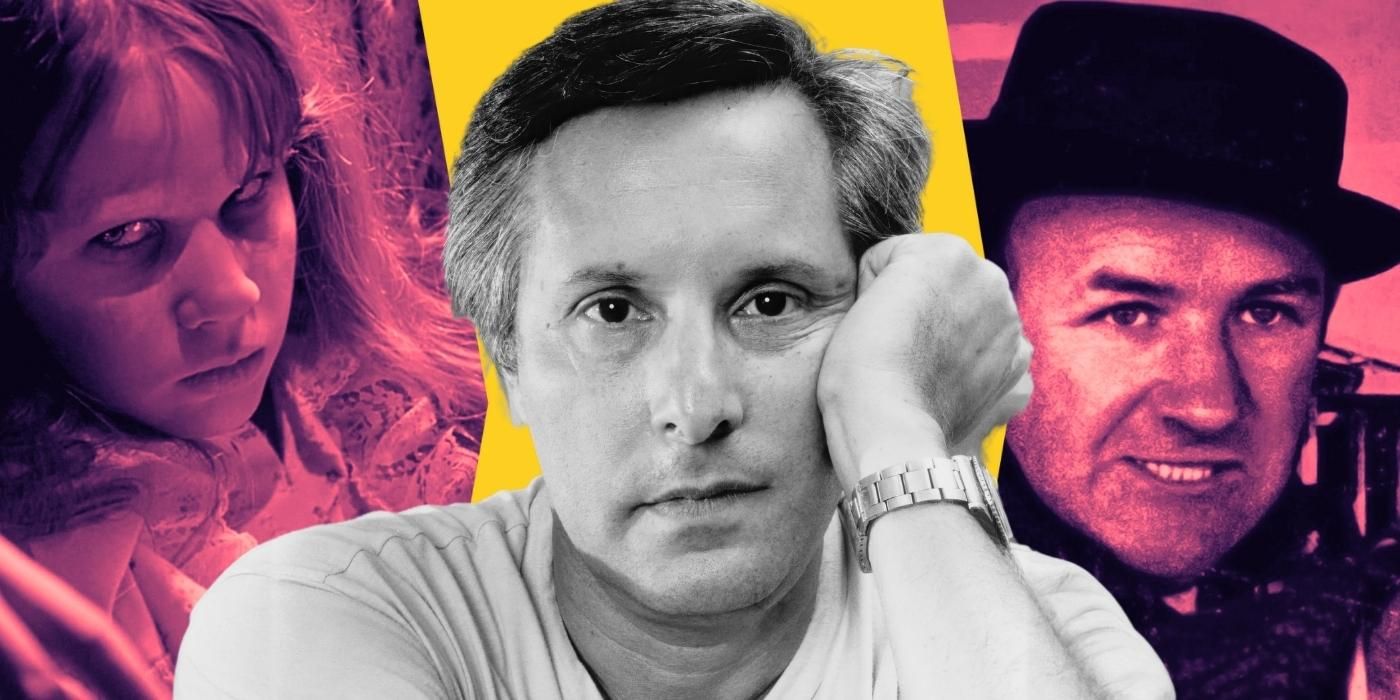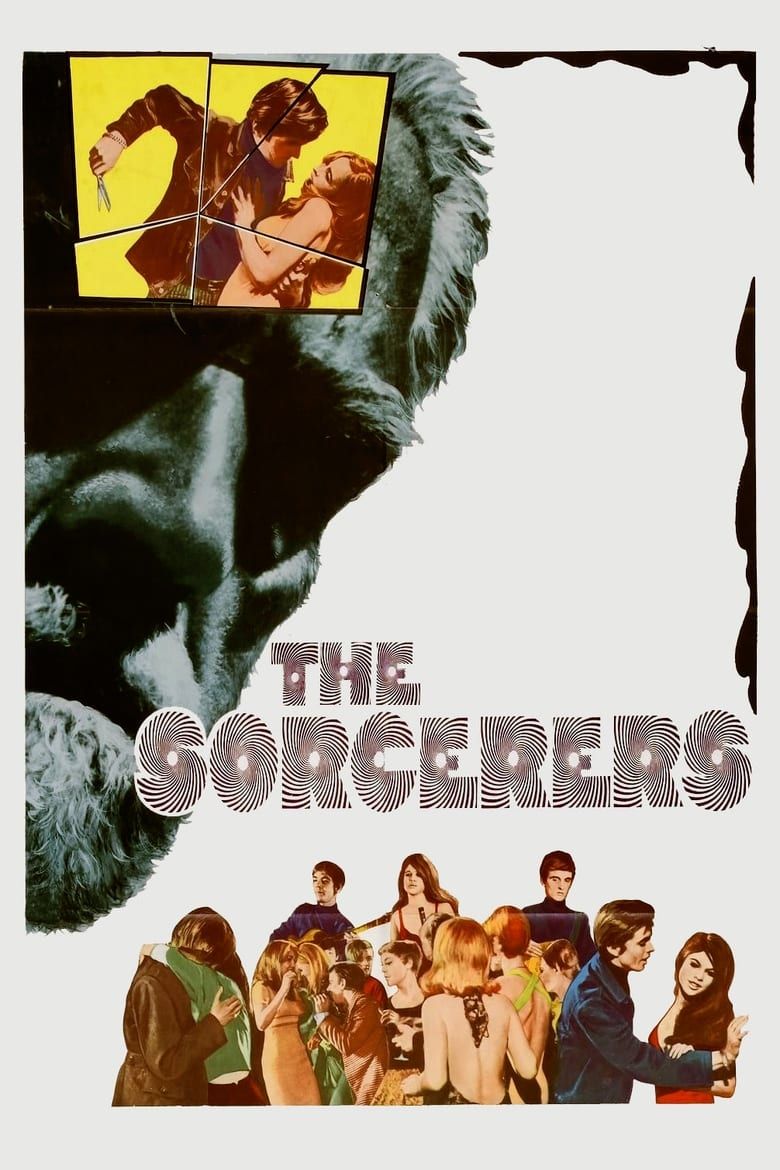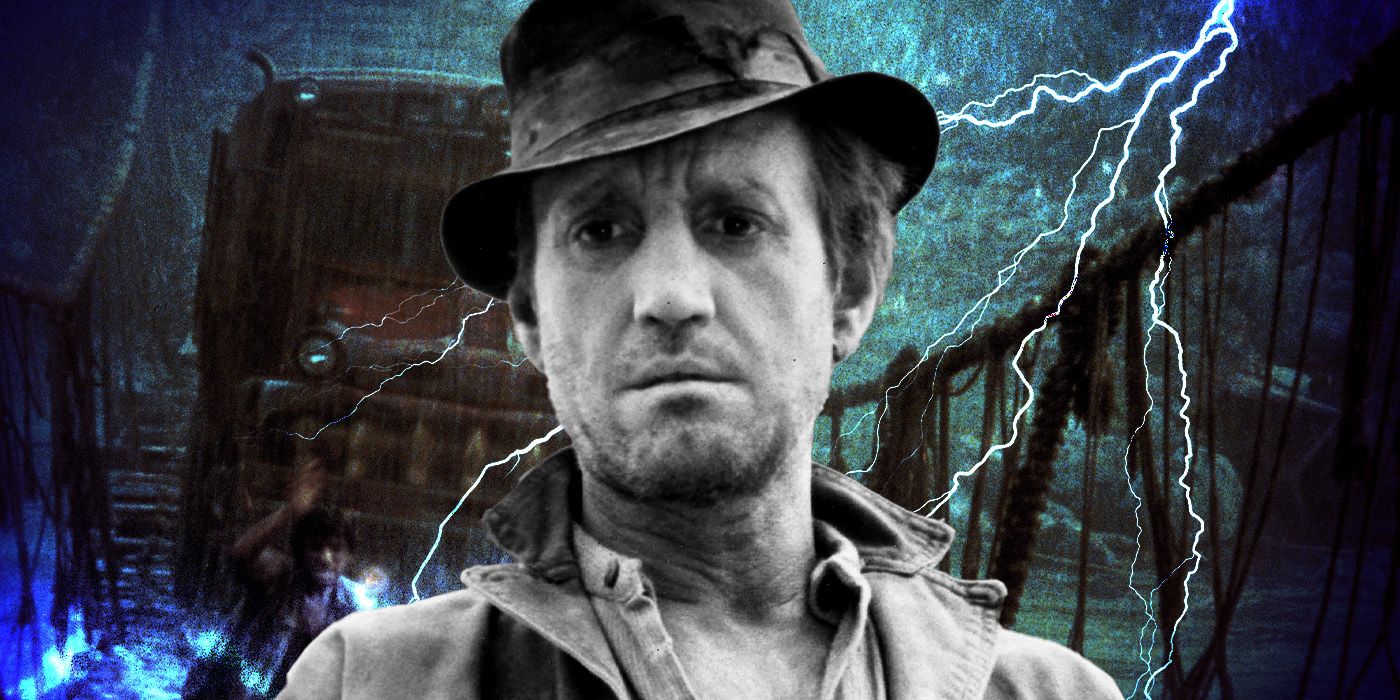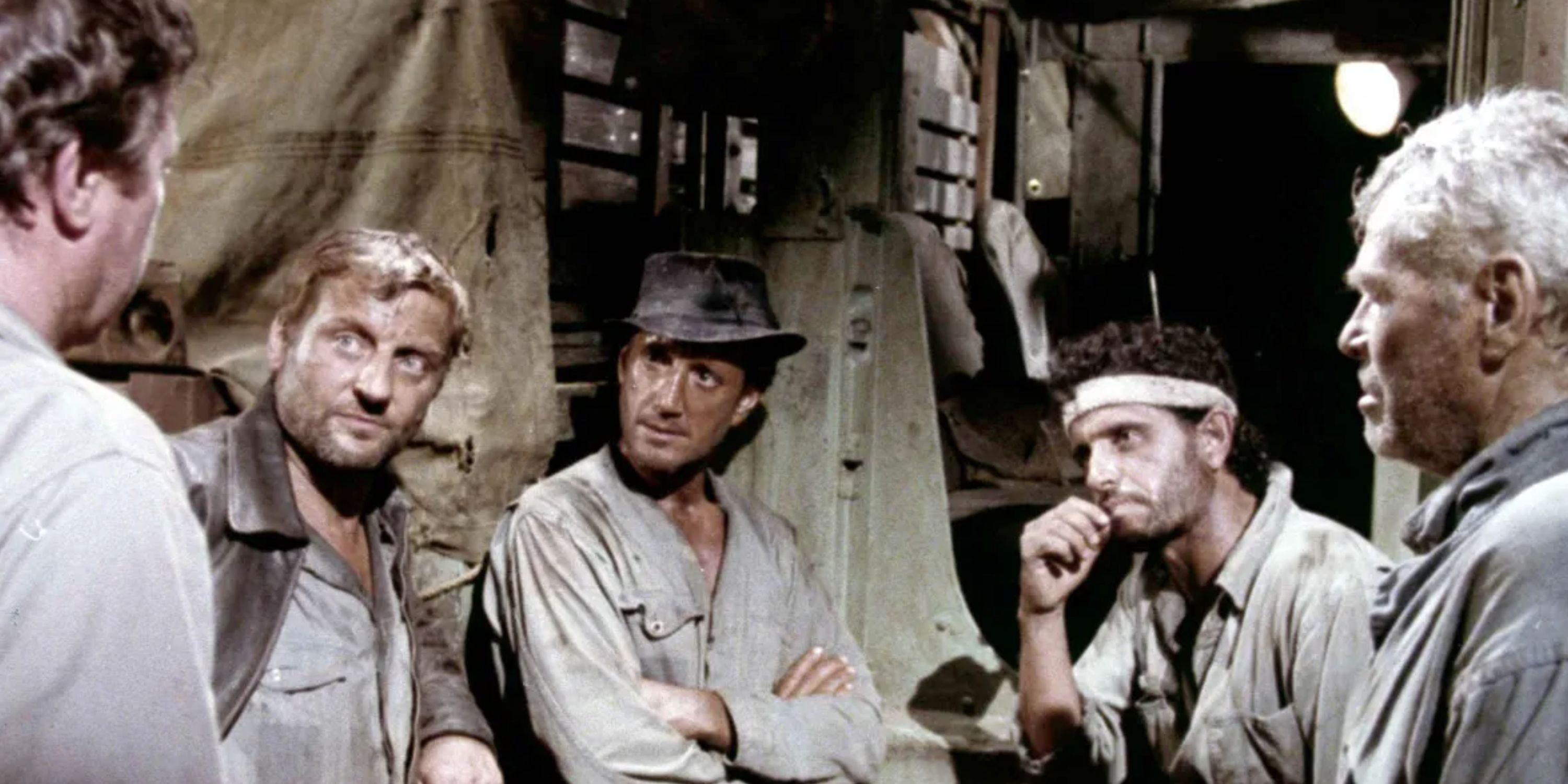In order to be Stephen King‘s all-time favorite film, it certainly would have to deliver on the thrills and chills that the novelist has brought to the page for a half-century. You may be expecting an atmospheric supernatural ghost story or a grisly slasher film to be the It author’s personal favorite, but this honor belongs to William Friedkin‘s jungle-set adventure/crime thriller, Sorcerer. While not a traditional horror film, this 1977 gem evokes all the psychological torture and agonizing suspense of King’s masterpieces. Upon release, Sorcerer was notorious for its nightmarish production that mirrored the insanity of the narrative itself. A box office flop, it appeared that Friedkin’s work was all for naught, as it flopped at the box office in the same summer as Star Wars. Now rightfully reclaimed as a masterpiece, it’s perplexing how something this invigorating and involving could ever fail to connect with mainstream audiences.
Stephen King Has Praised William Friedkin’s ‘Sorcerer’
Coming off The French Connection and The Exorcist, a Best Picture winner and one of the highest-grossing films of its era, respectively, no one could say “no” to William Friedkin. This level of freedom arguably led to megalomania, culminating in the disastrous production of his follow-up, Sorcerer, based on the novel and the 1953 film by Henri-Georges Clouzot, The Wages of Fear. Starring Roy Scheider as one of four on-the-run criminals from opposite parts of the world who converge in Central America to take on the potentially fatal job of transporting two truckloads of volatile nitroglycerin, it’s a miracle the film ever got finished and that no one died while making it.
Everyone knew about the complicated nature of the production, which saw the cast and crew plunge into hell on Earth, filming the iconic bridge scene with little trickery and sending 50 crew members to the hospital with illnesses. In the near-50 years since its release, Sorcerer, which is getting a shiny new restoration by the Criterion Collection, ranks high among most people’s lists of the best 1970s films. As an action-thriller, it puts all modern big-budget blockbusters to shame. The late William Friedkin was blessed with preternatural skills as an entertainer, along with his groundbreaking formalism and psychological probing of characters.
“Some may argue that the Clouzot film is better; I beg to disagree,” Stephen King told BFI in 2017, revealing his favorite movie to be Sorcerer. The provocative and bluntly critical Friedkin had nothing but praise for his work, calling it his favorite among all his films. “It’s the only film I’ve made that I wouldn’t change a frame of it,” the director said. More so than The French Connection or The Exorcist, which altered the fabric of their respective genres, Sorcerer represents a visionary, fearless director at the peak of his powers and control.
‘Sorcerer’ Is Pure Madness and Intensity on the Screen
As impressive as the jaw-dropping driving sequences that make up the second half is the methodical plotting and tension-building of the first act, which follows the four outlaws in their respective countries, leading up to the moment that forces them to flee. The vignette framing of these stories is jarring at first, but they are seamlessly woven together, as each character shares a lingering sense of doom and disruption to their criminal lifestyles. These are all exceptionally skilled or influential people, but by the time they arrive in the sweltering village in Central America, stripped of their personal and professional lives, they appear so vulnerable. Rather than feel giddy watching some outlaws drive through hurricanes and unstable bridges delivering flammable chemicals, you pity them for being in such a desperate state.

Related
The 10 Best William Friedkin Movies, According to IMDb
The visionary, Oscar-winning director passed away at 87, leaving behind a singular legacy.
Mortality clouds over Sorcerer and its characters, who are all sweaty, sporting five o’clock shadows, and drudging through life as if they are on two hours of sleep. Through minimal backstory and character details, Friedkin makes each character feel fully formed, and their mission serves as a tragic allegory on capitalism, which forces untested laborers to put their lives on the line for a marginal chance to support themselves, all while the American oil company hiring them reaps all the rewards. The transportation scenes, heart-pounding and thematically rich without needing any explicit commentary, act as poetry in motion for the cynicism of the 1970s on screen.
The ticking-time bomb dread oozes off the screen thanks to a mesmerizing score by Tangerine Dream, the German electronic music group that helped define ’80s synth with Thief and Risky Business. Despite everything getting out of control on and off the screen, Friedkin relies on subtle gestures between the characters (helped by Roy Scheider’s expressive resting face) and the minor obstacles in the road of their journey, which serve as the difference between life and dying in a blazing inferno. William Friedkin’s mastery of tone, narrative pacing, and thriller set pieces blended to create the confection of cinematic perfection also known as Sorcerer.

The Sorcerers
- Release Date
-
June 25, 1967
- Runtime
-
87 minutes
- Director
-
Michael Reeves
- Writers
-
Tom Baker
- Producers
-
Patrick Curtis
Cast
-

Boris Karloff
Prof. Marcus Monserrat
-

Catherine Lacey
Estelle Monserrat
-

-



